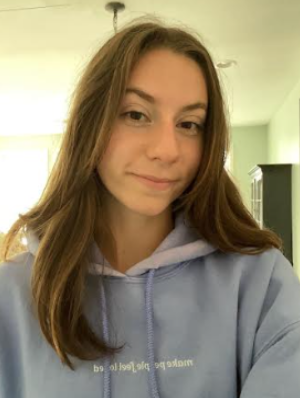
Uniforms, fancier facilities, or religion classes may be what comes to mind when one mentions private school. Still, the student experience goes beyond getting dress coded for wearing mismatched socks. On the other hand, public schools are often docked for inadequate funding and student behavioral issues more often than their pricier counterparts. Despite differences between the two, each poses unique advantages for students, proving that education does not have a one-size-fits-all model.
Loudoun County Public Schools (LCPS) rank as the fifth best school district in Virginia with five high schools placing in the Top 25 schools of the state according to US News. It’s no secret that Loudoun’s public schools system is better off than others. Still, many students in Loudoun County opt to attend a private institution. Virginia Academy and Fairfax Christian are two private schools that many students zoned for LCPS choose to attend. Students who have attended or currently attend these private schools point out a few key distinctions between their experiences at a private versus a public school.
Ayla Harding, who attended Stone Bridge her freshman and sophomore years but has since transferred to Virginia Academy, said that the biggest difference in attending private school is the “student culture,” referring to the valuable relationships among staff and students.
“In private school, it’s very relational,” Harding said. “Everyone has a certain standard of knowing and caring about each other.”
Harding said that because her school is affiliated with a non-denominational Christian church, faith plays a part in bringing teachers and students together.
“All of our teachers and staff are Christian but a large portion of our student body is not,” Harding said. “So we have a super diverse student body, and it really is just incredible the way that having faith implemented into the classroom in a way where people aren’t expected to be Christian but they’re welcome to be is just great.The relational aspect is again elevated on a whole other level when you have teachers who are willing to and able to pray with you. [They] understand that there’s a larger spiritual component to your development as a young person that reaches beyond academics and all the other stuff you deal with when you’re growing up.”
That connectedness is emphasized by the fact that many private schools have smaller student-to-faculty ratios. Stone Bridge senior Sierra Bush, who previously attended Fairfax Christian School, said that being in smaller classes gave her an advantage in Advanced Placement (AP) courses.
“You’re in a smaller environment, which means you get a lot more one-on-one in your AP classes,” Bush said. “In private school, I can say, ‘I don’t get this,’ and [teachers] will put aside time because it’s smaller.”
While smaller classes meant more individualized attention, Bush said that her school lacked diversity in terms of socioeconomic status and gender.
“I wouldn’t say ‘don’t go to private school,’ but I would say look into the size and diversity first,” Bush said. “The biggest problem that you’re going to see in private schools is that everyone’s from the same demographic. You only hear the opinions of people that agree with you, and then, even if they’re wrong, they get reinforced.”
Bush, who transferred to Stone Bridge during her sophomore year, said that public school gives students the opportunity to learn from peers with “different perspectives.”
“Being in public school, you always have that opportunity to meet other people outside of your circle and outside of your bubble and class doesn’t really matter at school,” Bush said. “You get to be around everyone regardless of status.”
Harding noted that another advantage to public school is the breadth of extracurricular activities, saying that it was one thing she missed about attending Stone Bridge.
“I missed having access to a ton of different clubs, sports, all that,” Harding said.
Harding said that even though her current school itself doesn’t have a large variety of organizations within it, she’s found involvement through the affiliated church.
“I was just tallying my volunteer hours for and it’s like hundreds for just this year,” Harding said. “There are definitely ways to get involved with the community.”
Both Harding and Bush credited personal growth to their experiences in public and private school, revealing that each model has its advantages.
“Going between both, I’ve grown a lot,” Bush said. “I don’t think I act the same as a kid that’s just gone to public school, and I don’t think I’m the same as a kid that’s just gone to private school.”
Harding said that moving from public school to private school tested her adaptability and that her time at Virginia Academy has expanded her skills in areas that aren’t solely academic.
“Private school has pushed me to see what I value as an individual, which I think is really important as I’m moving into my next era of life,” Harding said. “I feel like I’ve just become well-rounded as a person and been challenged in that way.”



